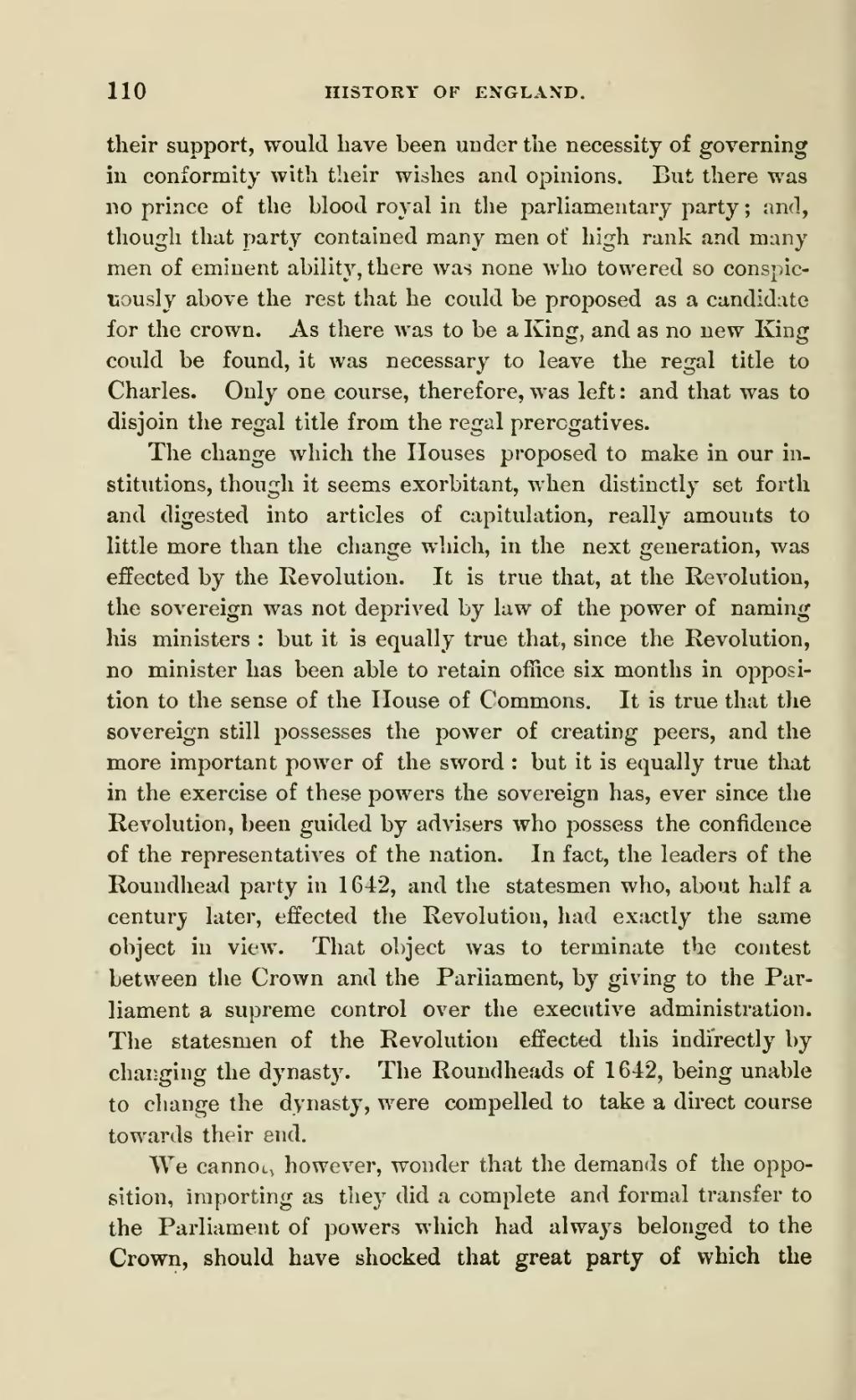their support, would have been under the necessity of governing in conformity with their wishes and opinions. But there was no prince of the blood royal in the parliamentary party; and, though that party contained many men of high rank and many men of eminent ability, there was none who towered so conspicously above the rest that he could be proposed as a candidate for the crown. As there was to be a King, and as no new King could be found, it was necessary to leave the regal title to Charles. Only one course, therefore, was left: and that was to disjoin the regal title from the regal prerogatives.
The change which the Houses proposed to make in our institutions, though it seems exorbitant, when distinctly set forth and digested into articles of capitulation, really amounts to little more than the change which, in the next generation, was effected by the Revolution. It is true that, at the Revolution, the sovereign was not deprived by law of the power of naming his ministers: but it is equally true that, since the Revolution, no minister has been able to retain office six months in opposition to the sense of the House of Commons. It is true that the sovereign still possesses the power of creating peers, and the more important power of the sword: but it is equally true that in the exercise of these powers the sovereign has, ever since the Revolution, been guided by advisers who possess the confidence of the representatives of the nation. In fact, the leaders of the Roundhead party in 1642, and the statesmen who, about half a century later, effected the Revolution, had exactly the same object in view. That object was to terminate the contest between the Crown and the Parliament, by giving to the Parliament a supreme control over the executive administration. The statesmen of the Revolution effected this indirectly by changing the dynasty. The Roundheads of 1642, being unable to change the dynasty, were compelled to take a direct course towards their end.
We cannot, however, wonder that the demands of the opposition, importing as they did a complete and formal transfer to the Parliament of powers which had always belonged to the Crown, should have shocked that great party of which the
